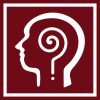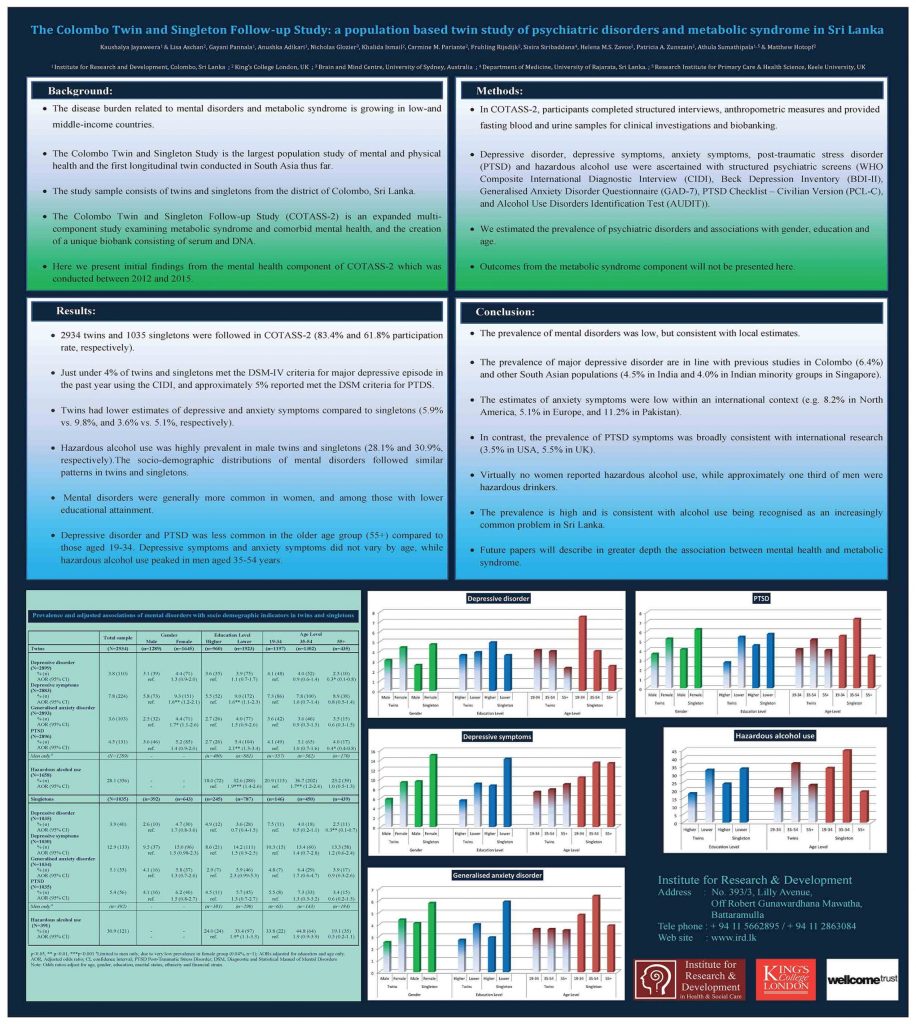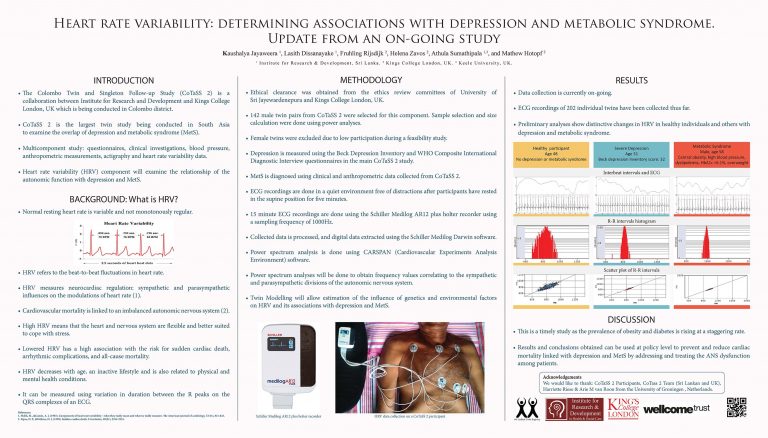Objectives
Describe sleep duration in adult Sri Lankans and determine the bias and agreement of self-report and actigraphic assessments.
Design
Validation sub-study nested within the Colombo Twin and Singleton Study (2012-2015).
Setting
Colombo, Sri Lanka.
Participants
175 adults with actigraphy, randomly selected from 3497 participants with self-reported sleep assessed in a population-based cohort.
Measurements
Self-reported sleep duration, ascertained by the Pittsburgh Sleep Quality Index (PSQI), was compared to a minimum of four days of actigraphy. Bias and agreement were assessed using the Bland-Altman method and a novel application of criterion cut-point analysis. Objective measurements of wake after sleep onset (WASO) and sleep efficiency were evaluated.
Results
Sri Lankans have short sleep duration; averaging 6.4h (SD 1.5) self-reported and 6.0h (SD 0.9) actigraphically. Poor sleep quality was prevalent with an average WASO of 49 min., and sleep efficiency <85%. Bias was observed, with self-report consistently over-reporting sleep on average by 27.6 min (95% CI: -0.68, -0.24) compared to objective measures, but wide individual variation in disagreement, ranging from over-reporting by 3.34h to under-reporting by 2.42h. A criterion cut-point method also failed to define agreed definitions of short and long sleep duration.
Conclusions
Sleep in Sri Lankan adults, whether measured subjectively or objectively, is of short duration and suboptimal objective quality by High Income Country consensus standards. Given the high cardiometabolic morbidity in Sri Lanka and poor measurement agreement observed, this warrants further investigation and supports the need for culturally appropriate, reliable, and valid assessment for analytic epidemiology in non-Western settings.



